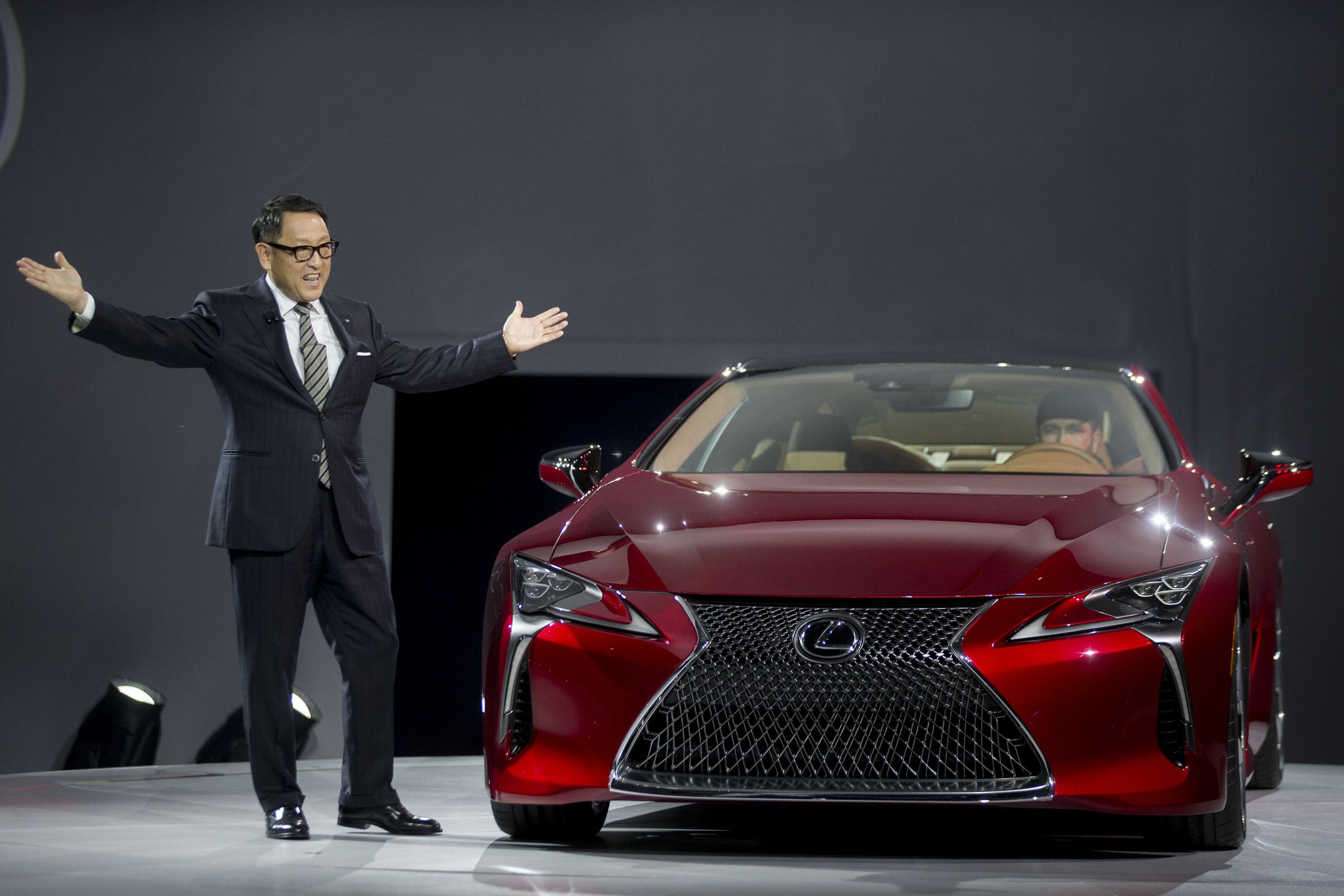
So much for the siren song of horsepower.
During the first day of the North American International Auto Show, which opened Jan. 11 in Detroit, paeans to traditional automotive virtues–power, speed, driving dynamics–were overshadowed by talk of apps, Internet connectivity, and vehicles that leave the white-knuckling to algorithms.
To be sure, automakers spent plenty of time showing off glitzy new models like the Chevrolet Bolt, an all-electric vehicle aimed at the mass market, and Volvo’s S90, a tony sedan intended to make the Chinese-owned Swedish brand relevant with luxury customers again. But most seem to be grasping with the same set of existential questions–namely the matter of when and how the auto industry will be disrupted, not if.
During the flashiest and most well-attended presentation, Ford Motor Company executives took the issue head on by unveiling the beginnings of a strategy to transform the iconic American company. CEO Mark Fields said Ford will continue to manufacture and sell cars as it traditionally has, but will also turn itself into a “mobility” provider through a network of apps and services that offer ride-sharing, transportation assistance, and new types of vehicle leasing, for example. The company is also drastically expanding its fleet of self-driving test vehicles, including new trials in wintry weather, which presents one of the most knotty problems for autonomous cars.
“Everybody is talking about Silicon Valley disrupting the car business,” said Fields. “But we’re going to disrupt ourselves.”
The Ford executive spent a considerable amount of time outlining the ways in which Apple transformed itself over the past two decades, upending the music and phone markets along the way. The message to attendees was clear: Ford doesn’t intend to let California firms like Apple, Google, and Tesla take its business away. Bill Ford Jr, the company’s chairman and grandson of its famous founder Henry, added the firm’s mission was to “make people’s lives better,” whatever form that may take.
Not that the car business is ailing. The automotive industry sold more new cars and trucks than ever before in 2015, analyst WardsAuto said earlier this month. In the U.S., manufacturers sold some 17.4 million light-duty vehicles, a 6% increase from the previous year. Cheap gas and low interest rates encouraged consumers to splurge; the average price paid for a new vehicle reached $34,428 in December, according to Kelley Blue Book, setting another record. And dealers say buyers are increasingly demanding SUVs, which deliver fatter profit margins.
Read more: Tesla’s Elon Musk says he’s very close to a major gamechanger
Still, the convergence of several major trends–semi- and fully autonomous cars, electric power, and the new business models of so-called sharing economy startups like Uber–amount to so much writing on the wall. The global car business is worth $2.3 trillion annually. By comparison, the transportation services market is $5.4 trillion. The latter is expected to grow much faster than the former as populations in emerging economies rapidly urbanize over the next few decades.
See Volkswagen's Funky New All-Electric Bus
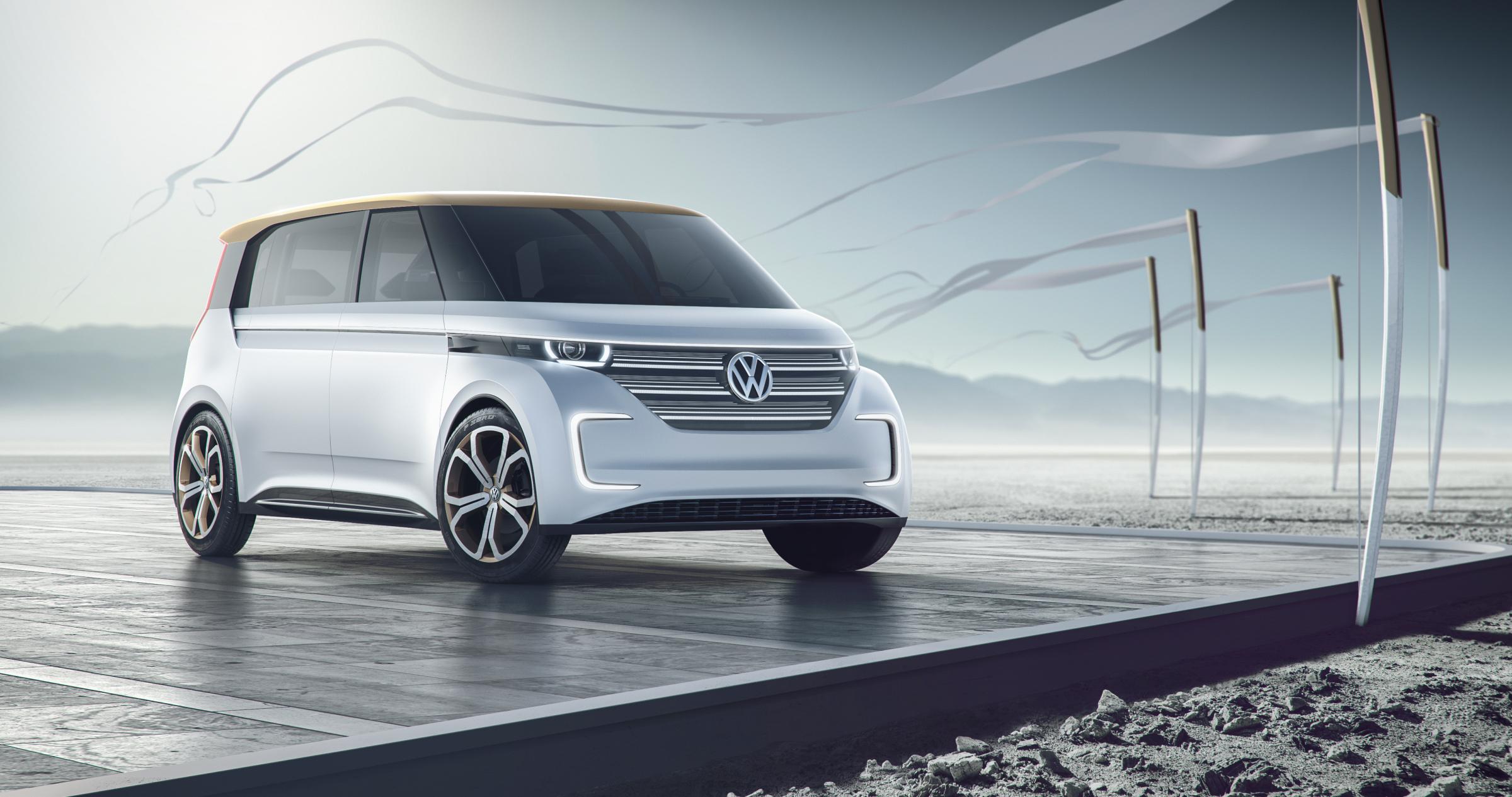
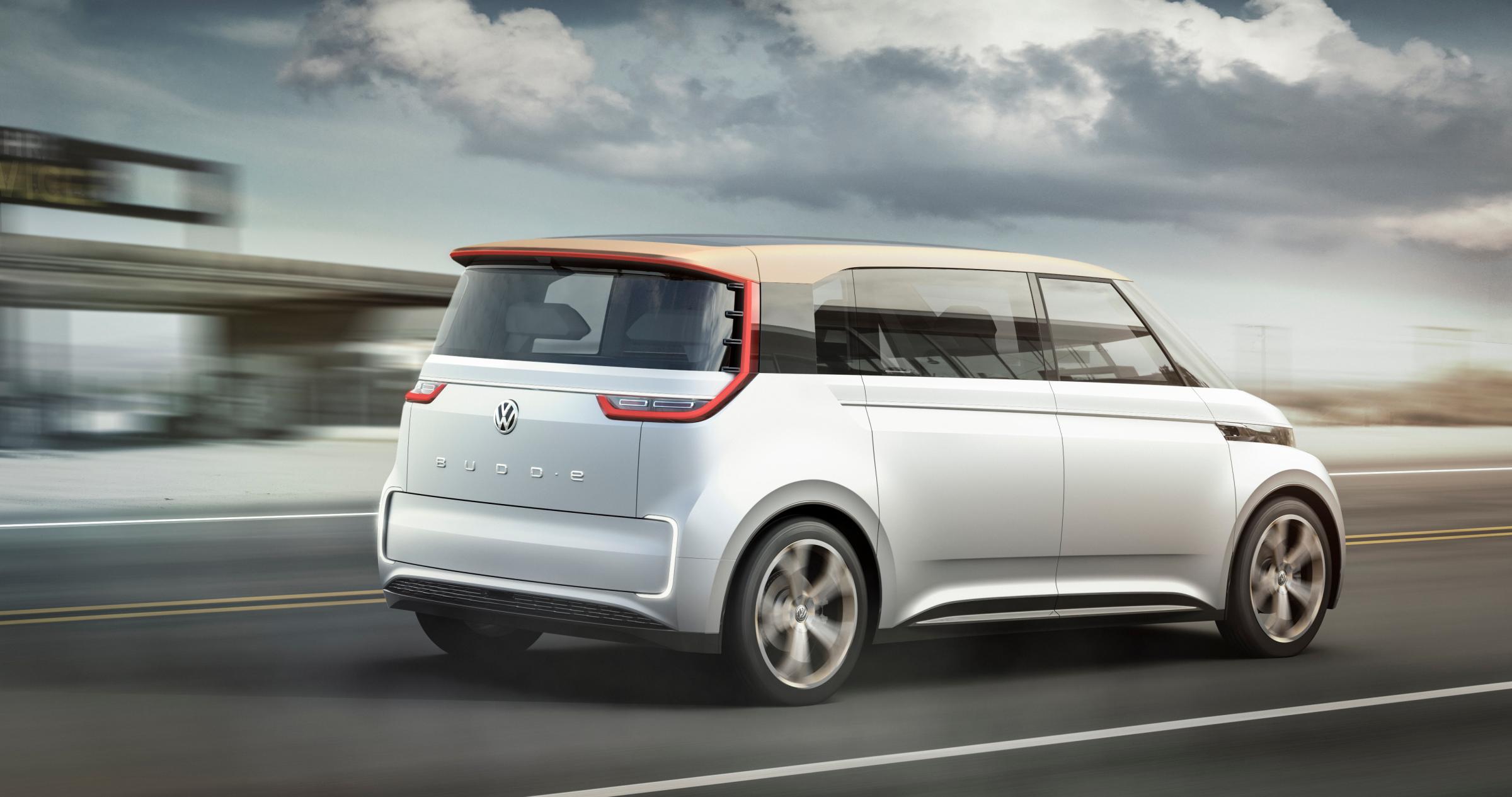
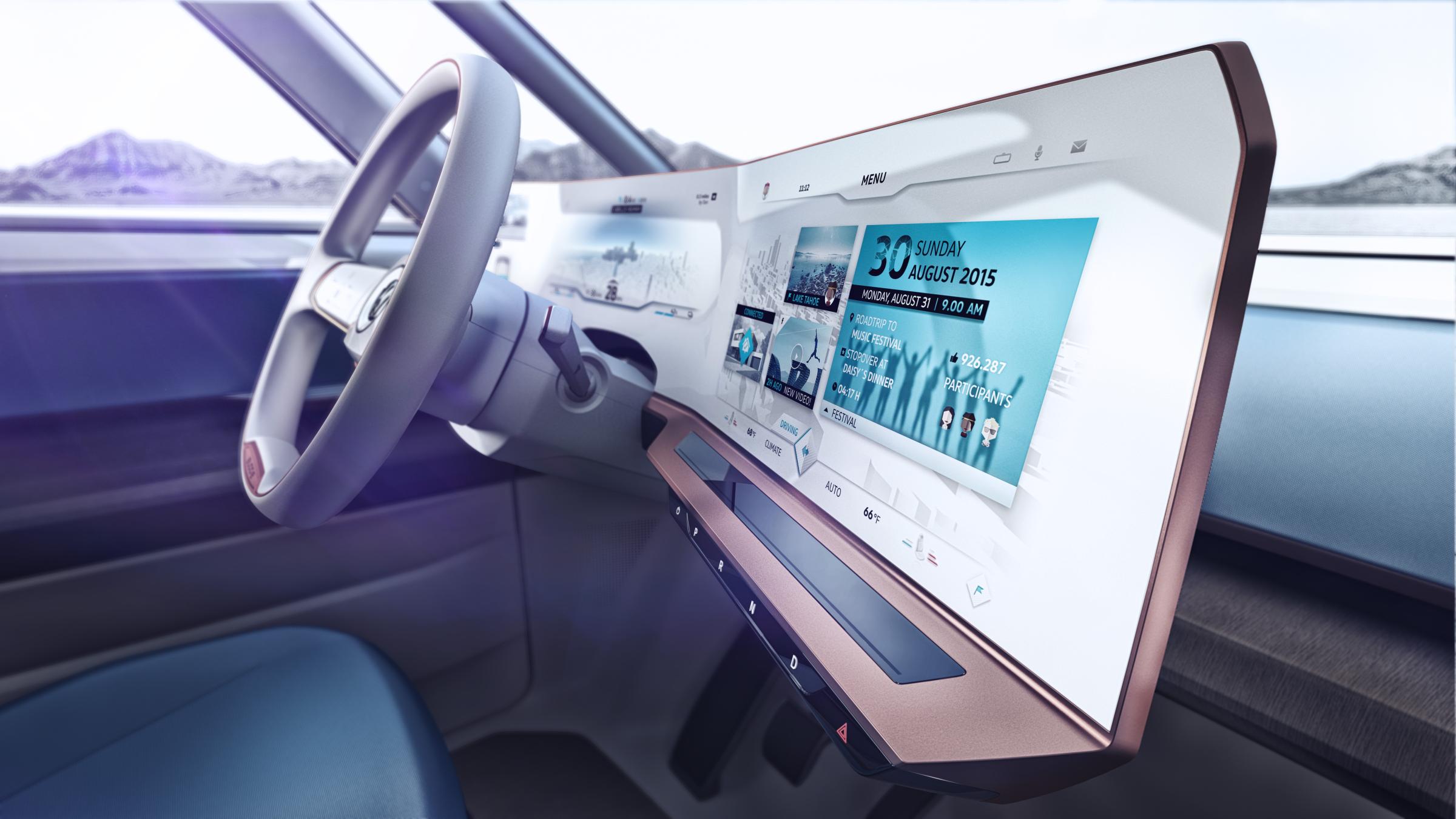
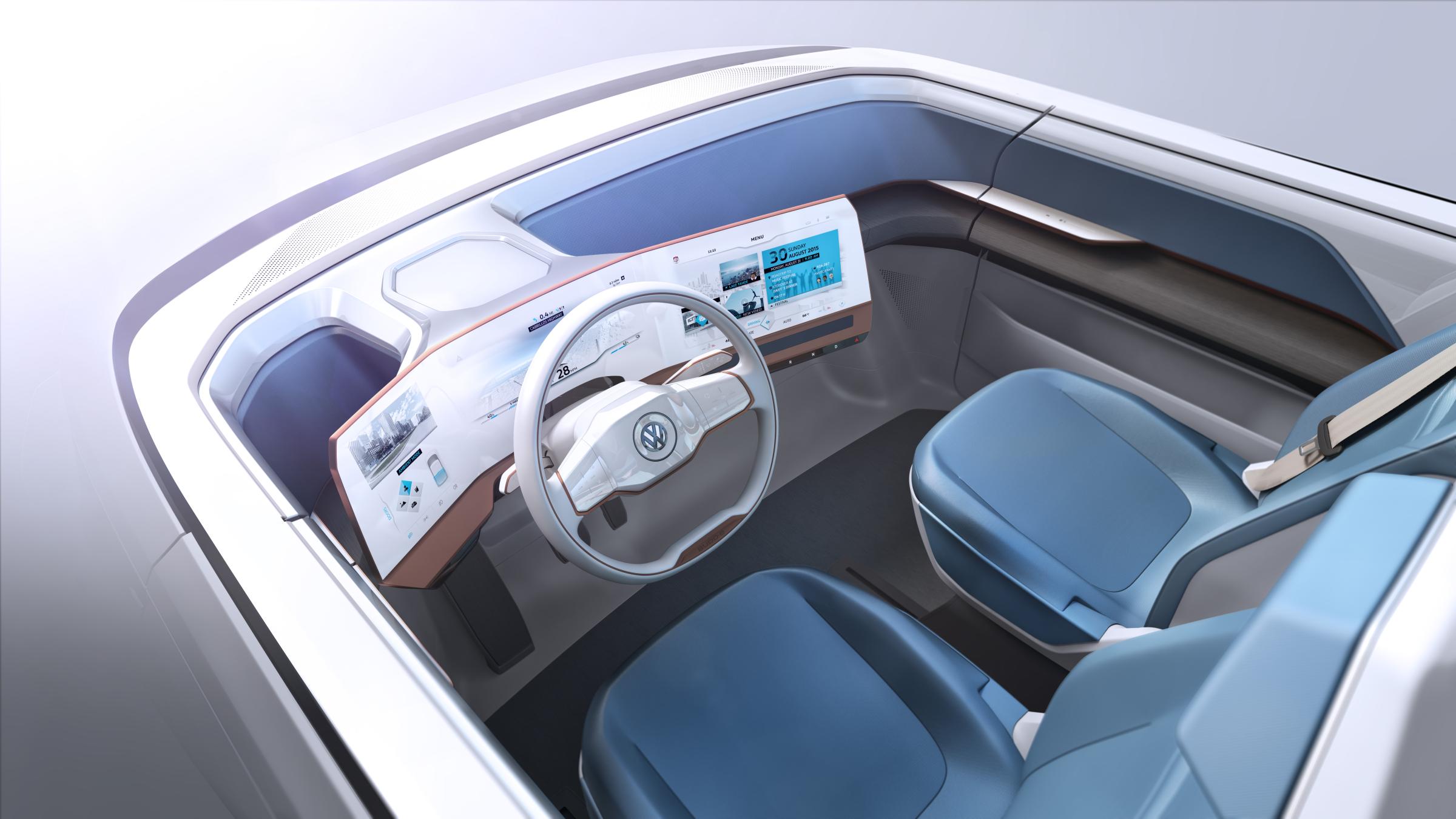
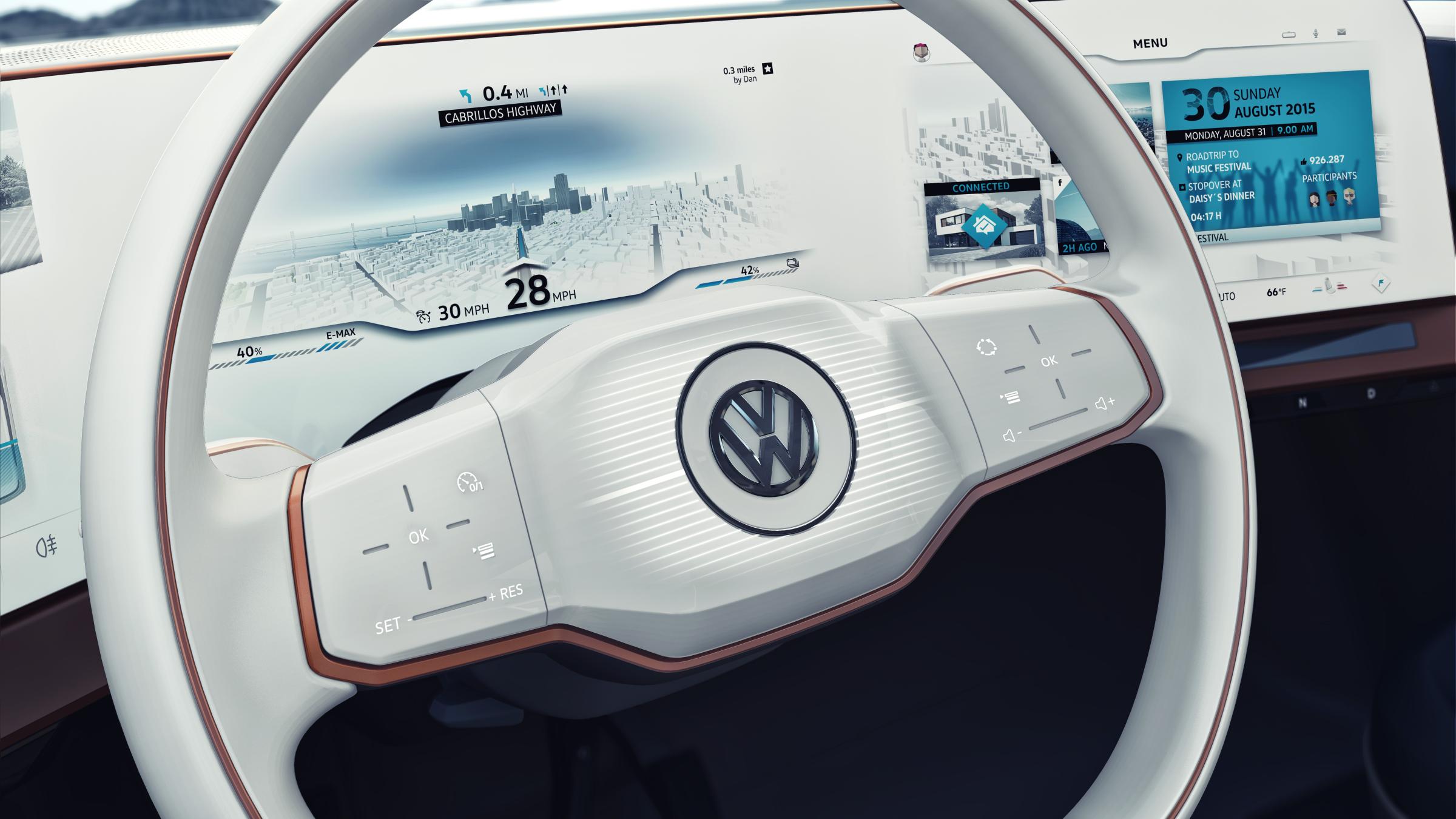
The real difficulty for automakers is betting on what shape the future might actually take. Will car ownership wane as fleets of shared vehicles take over the roads? (A recent Morgan Stanley report concluded self-driving vehicles could cut the American auto market nearly in half.) Will the profits of making cars shift to those who control the software inside? (Many of the show’s keynote presenters touted new vehicles’ compatibility with in-car technology developed by Apple and Google.) Or is some entirely different outcome in the cards?
Automakers seem to be placing bets on all of the above. General Motors is investing $500 million in Uber rival Lyft, with an eye toward developing a fleet of self-driving vehicles that would arrive with the tap of an app. Toyota executives recently told the Financial Times that personal robotics may eventually overtake the Japanese firm’s autos business. And during a press conference at the show, Volvo president and CEO Hakan Samuelsson pledged that “no one should be killed or seriously injured in a new Volvo by 2020,” a lofty goal made possible by forthcoming autonomous technology.
Whatever happens, most seem to agree the road ahead will offer plenty of curves.
More Must-Reads from TIME
- Cybersecurity Experts Are Sounding the Alarm on DOGE
- Meet the 2025 Women of the Year
- The Harsh Truth About Disability Inclusion
- Why Do More Young Adults Have Cancer?
- Colman Domingo Leads With Radical Love
- How to Get Better at Doing Things Alone
- Michelle Zauner Stares Down the Darkness
Contact us at letters@time.com